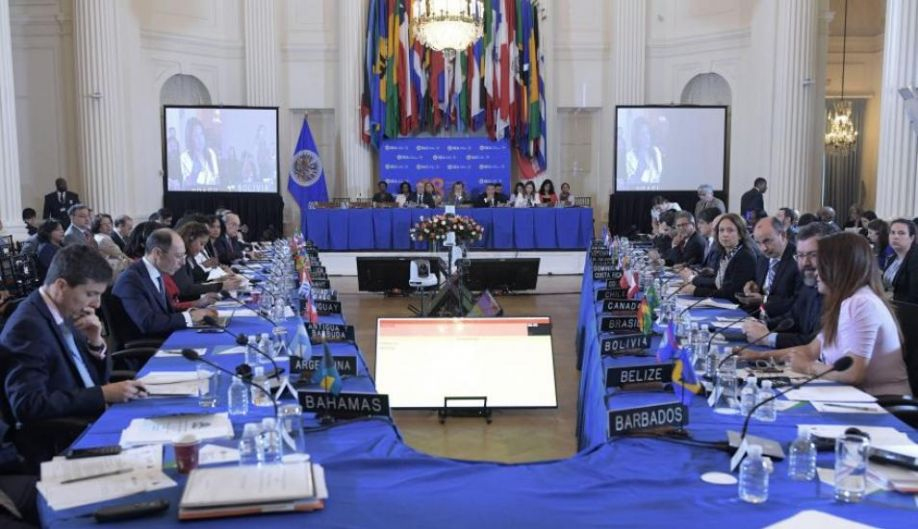by Beatriz Pascual Macías
The OAS today asked the president of Nicaragua, Daniel Ortega, to “support an electoral calendar” agreed upon in the national dialogue, mediated by the Catholic Church, in a formula that seeks early elections as a way out of the crisis that has left more than 350 dead in three months.
The request for the elections was included in a resolution approved today at an extraordinary session of the Permanent Council of the Organization of American States (OAS), based in Washington.
The text, promoted by seven countries (Argentina, Canada, Chile, Colombia, Costa Rica, Peru and the US) and supported by Mexico, “urges” the Nicaraguan Executive to “support an electoral calendar agreed together in the context of the National Dialogue process. ”
The Nicaraguan Bishops’ Conference, mediator and witness of said dialogue, requested Ortega to advance the elections on March 7, 2019, on July 7, but on July 7, Ortega rejected it, considering that there would be “time for elections”, as mandated by law. ”
The resolution was approved with the vote in favor of 21 of the 34 countries that are active members of the OAS, while three (Nicaragua, Venezuela and Saint Vincent and the Grenadines) voted against and seven abstentions were registered, as well as three absentees, among them Bolivia.
The initiative does not point to Ortega for violence, but urges his government to participate “actively and in good faith” in the national dialogue, in which authorities and the opposition Civic Alliance, which brings together the private sector and society civil.
In the resolution, the OAS expressed its condemnation of the “harassment” of the bishops participating in the dialogue, as well as the “acts of violence” against Caritas offices that were set on fire and against the National Autonomous University of Nicaragua (UNAN, which became the center of the protests.
Hostilities have increased in recent days with attacks such as the UNAN and the one that occurred yesterday against the city of Masaya, which has led to the condemnation of countries such as the United States and organizations such as the European Union (EU).
In response to these criticisms, the Minister of Foreign Affairs of Nicaraagua, Denis Moncada, brought to the Permanent Council his own resolution, which called on the international community to respect their “self-determination” and blamed “international terrorist groups” for instigating violence .
That Nicaragua initiative failed with the vote against 20 states, eight abstentions, three absentees and the support of only three countries (Venezuela and Saint Vincent and the Grenadines).
The votes evidenced the solitude of Nicaragua in the OAS, which only obtained the support of Saint Vincent and the Grenadines, Venezuela and Bolivia, whose mission had proposed some amendments to modify the approved resolution but decided to leave the room abruptly due to disagreements in the procedure.



